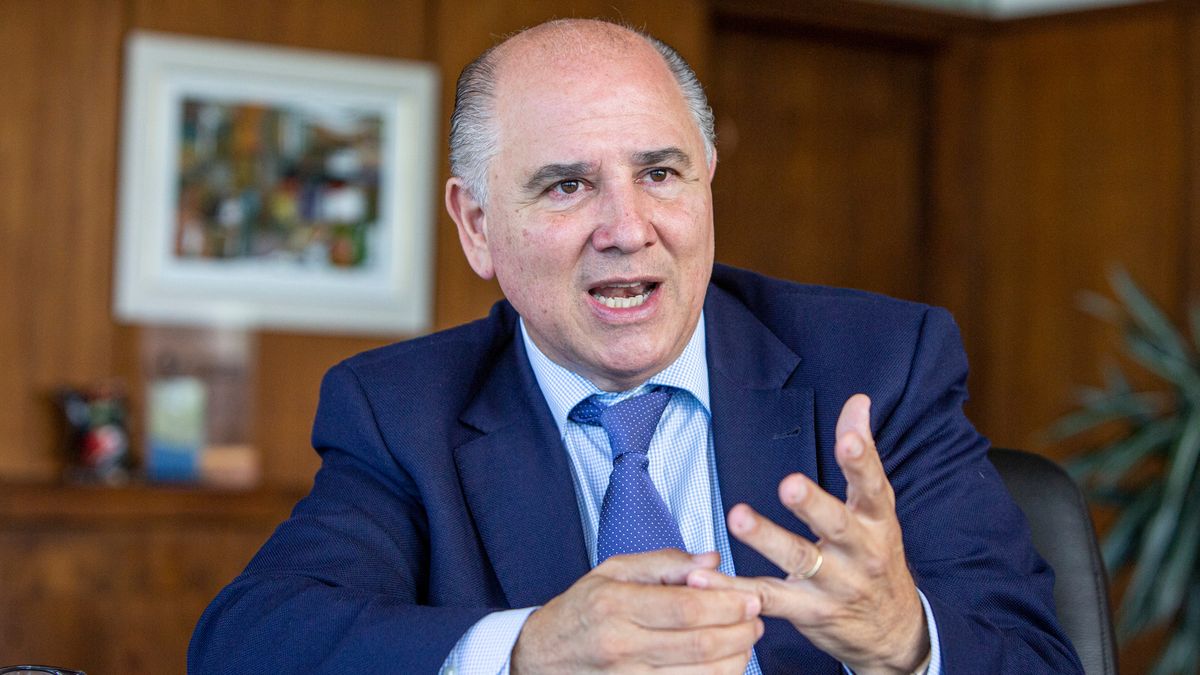The president of the Chamber of Industries of Uruguay (CIU), Fernando Pachewas very concerned about the impact of the exchange rate delay during an interview with scope.com. It portends difficulties for this first semester of the year if the profit margins for the sector. Satisfied with the measures announced on March 2 by the president Luis Lacalle Pouindustrialists also place expectations on improving the international insertion from the country.
– What is the impact on competitiveness of the delay in changing it?
– Exchange rate deviations have an impact mainly on profitability, on margins, especially when they are abrupt because they do not give time to adjust costs, contracts, current agreements with suppliers, workers, financiers, etc. This affectation of profitability brings difficulties to sell, both in the domestic market and in exports. We are already seeing effects on those variables. And if these effects persist, the next step is the loss of jobswhich is not yet taking place but will surely happen already in this first semester.
– What measures have been proposed by the business sector in this regard and what responses have there been from the government?
– First of all, we are asking for a less contractionary monetary policy for the coming months, considering that the inflation is yielding The exchange rate mismatch is very high, so it should be taken into account in the balance of risks, even if this implies a slower reduction in inflation. Secondly, for some industrial sectors, a tax devaluationthat is, implement support measures on the tax side such as increasing the export tax refund. Thirdly, we believe that at times like the present, the public purchases They can act as temporary support for many companies and their workers.
In this sense, our proposals are on the side of increasing preference margins in public purchases in favor of local suppliers. Lastly, we need to combat the smuggling more effectively, since at times of rising prices like the current one, the illegal entry of products from abroad increases significantly.
– This is added to a complicated situation at the level of drought that clearly has an impact on the agricultural and livestock sector. Are we facing a particularly difficult time for the national productive sector?
– Indeed the drought further complicates the future scenario. We come with drops in international prices, costs in dollars that skyrocketed due to the drop in the exchange rate, and a drought of exceptional characteristics was added to us. A large part of our industry processes agricultural goods and will be affected by supply problems.
– What impact could the various scenarios that are handled regarding the signing of free trade agreements and the debate on the international insertion of the country have on the sector?
– Our country has a relatively small domestic market, so we have to constantly look abroad to grow. In that framework, opening new markets is key, either through the reduction of tariffs, or through trade facilitation measures. All markets are important beyond the fact that they have different characteristics. That is why Uruguay has to achieve access improvements on all possible fronts. And in that reflection I include the countries of the region, particularly Argentinabecause they are natural markets since we are local suppliers.
We have no doubt that the region, and in more general terms Latin America, is cutting off important growth opportunities for its companies and workers by not enabling a more fluid trade, without obstacles. Specifically with Argentina we are promoting the possibility of beginning to trade in local currencies, to reduce arbitration costs and achieve better conditions for both parties when exporting and importing. We are optimistic about getting some improvements in this regard.
– In recent days, President Lacalle Pou announced some measures with an economic impact. Did you expect anything in particular for the industrial sector? What overall assessment do you make?
– We did not expect something punctual for our sector. However, changes were announced in the taxation of micro, small and medium enterprises in line with proposals that we have been making for some years, and that last year we approached the Minister of Economy again, lily arbelecheto implement them as soon as possible in favor of this business group that is very numerous.
Our evaluation of the measures is positive, because as announced by President Lacalle Pou, the tax reduction will not affect the fiscal solvency, aspect of which we have been very critical in previous governments. We believe that the tax reductions are well oriented, particularly those that concern business taxation, improving equity among taxpayers.
Source: Ambito




